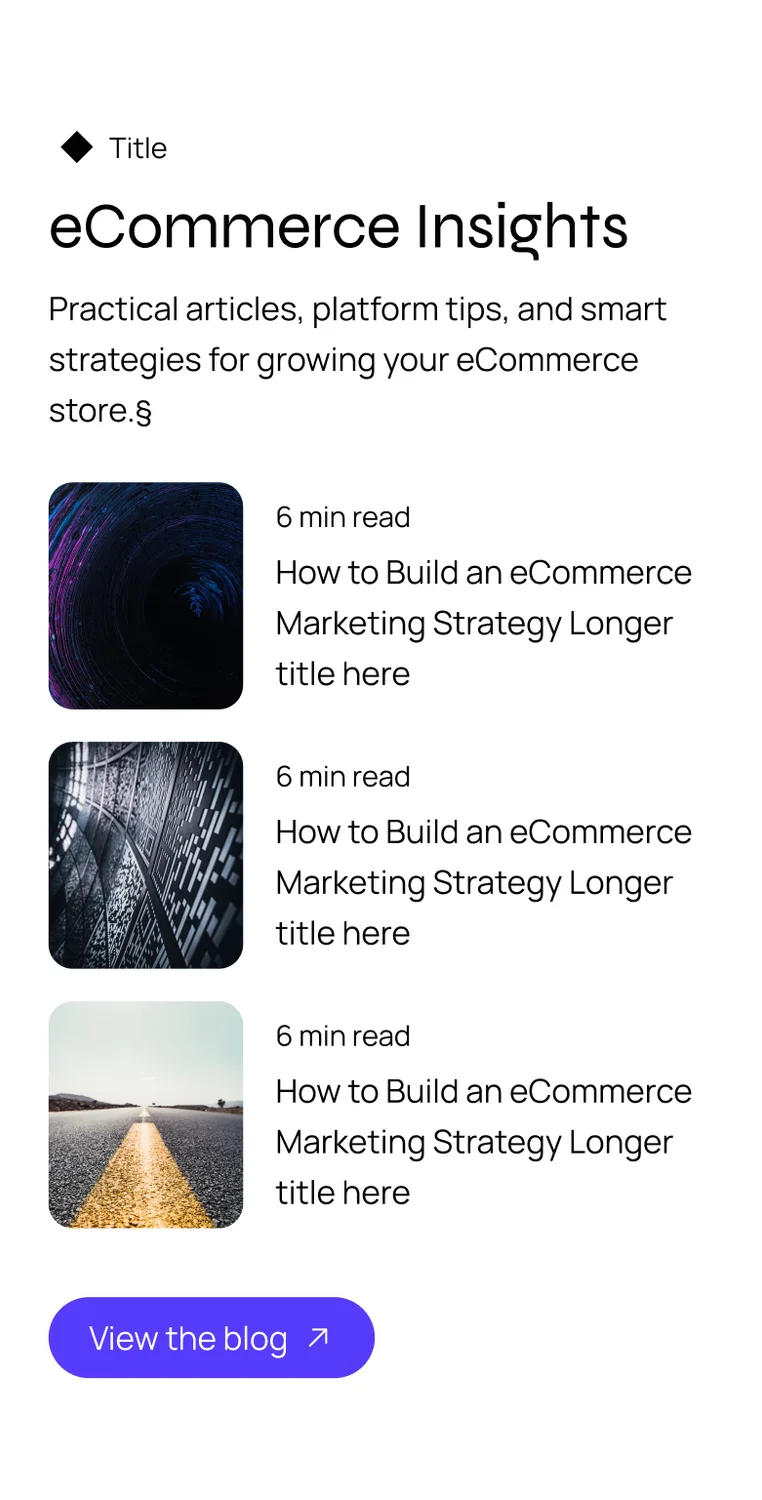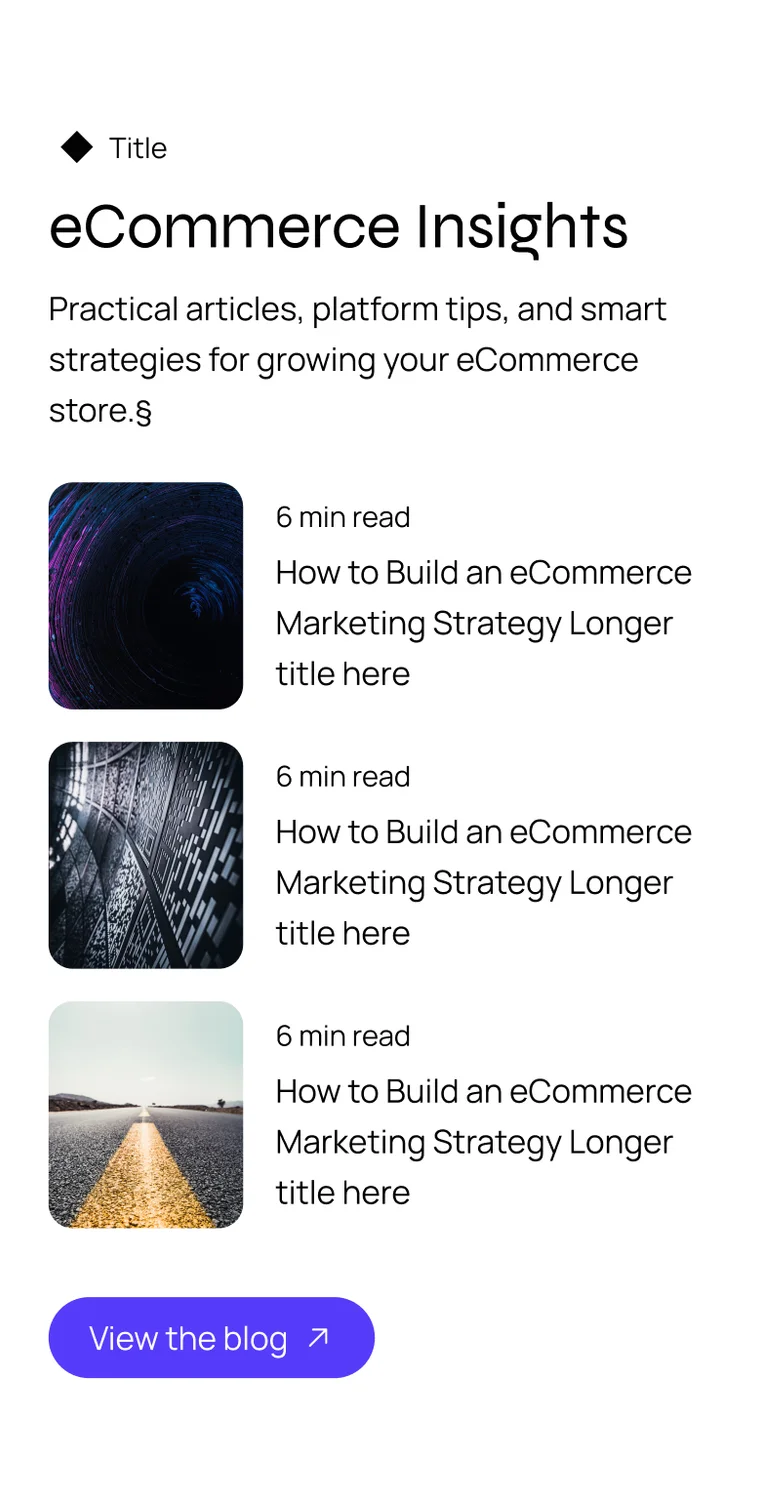March 12, 2024
You might be a little skeptical reading a Shopify review written by a Magento development agency but we’re firm believers that there’s no one platform suited to every eCommerce business. So, whilst Magento is our bread and butter, we do sometimes recommend Shopify as a platform and in this article we delve deeper into what Shopify is and whether it will work for your business.
What is Shopify?
Shopify is a website builder (more specifically an eCommerce SaaS provider) designed to be extremely user-friendly, allowing eCommerce merchants to get set up quickly and manage their store with ease. Upon setup, you get access to a range of templates to allow you to create a professional storefront for your brand.
What does Shopify do?
Shopify allows businesses to unify commerce functions; bundling product management, order processing and payment integration all into one platform with a stripped back user-interface. It also includes basic marketing tools and analytics to assist merchants in promoting their products and make data-driven decisions with their online activity.
It has three plans with the choice to pay monthly or yearly. Each plan has different features bundled into its ‘core’ layer. Merchants are then able to add to the core functionality with Shopify’s additional services and third-party apps to customise the platform.
The most appealing aspect of Shopify has to be the painless step-by-step set up process. You can either connect it to an existing website to add eCommerce functionality or start from scratch with one of their templates. You’ll need to add your products, set up your payment gateways, configure tax and shipping then you’re pretty much ready to go.
What can I sell on Shopify?
Shopify allows you to sell physical products, virtual products and services meaning lots of merchants are using Shopify for some pretty unique business ideas! Here are some products and services you can currently sell on Shopify:
- Physical product including handmade items that you deliver directly to the customer
- Digital products that customers can download including digital art and e-books
- Memberships
- Classes and workshops
- Donations and fundraisers
- Gift cards and vouchers
- Products sold in store
- Subscription boxes
Will Shopify Work for my Business?
In many cases, yes! Shopify is a powerful platform that is used by a huge number of businesses globally. There are also many businesses that Shopify is not the right solution for, especially if you’re a large business or are looking to scale. Here are some cases where we feel Shopify would be a great fit for your business.
Shopify Pros
Shopify could work for your business if:
- You are a startup and you’re looking to get your store set up quickly
- You have one or a few small physical stores and would like an online presence
- Your business model is very simple and you won’t require much bespoke functionality for your website
- You sell at local markets and events and would like to start selling your products online
- You’ve been using a marketplace platform like Etsy or predominantly sell via social commerce and would like more flexibility and control over your online activity (sidenote, if you have been using Etsy and want to scale up with Magento, we can integrate Etsy into Magento for you).
Our Opinion on Shopify
Shopify is a strong contender when it comes to eCommerce - it’s easy to use, super speedy to get set up and has some good core features. We can see why many merchants choose Shopify and even offer bespoke Shopify extensions as a service. If you don’t have technical expertise within your business or have access to a development agency then a platform like Shopify can offer a useful solution, especially if you don’t require much in the way of customisation. Although it is possible to use Shopify apps to bolt on additional features, we have created an Instant Quote Shopify App for clients ourselves.
However, as mentioned at the start of the article - there’s no one-size-fits-all when it comes to eCommerce. If you need any level of bespoke functionality - and chances are you will - then Shopify can be limiting and unlikely to offer a cost-effective solution for your business. In our experience, this is where Shopify falls short:
Shopify Cons
- High transaction fees if you’re not using Shopify payment methods
- Larger businesses often need extensive customisation to meet their business needs including integrations, unique workflows and custom features. This will incur additional costs via hiring developers or utilising the Enterprise plan.
- Although Shopify has integrated SEO features, these are quite basic so you might fall behind the competition when it comes to search rankings
- Blog and email integrations are also pretty basic so if you’re looking for something more intuitive you’ll need a third party app
- As the pricing is based on a monthly subscription fee, it’s typically much higher than self-hosted solutions like Magento for businesses with significant sales volume or complex requirements.
How Does Magento Compare?
For most mid to large businesses or those looking to scale, Magento is preferred for its flexibility and comparatively low cost.
- It offers the same core functions as Shopify but is an open-source platform so merchants have full control over their codebase, allowing for complete customisation.
- The costs are lower than Shopify as advanced features are available out of the box including multi-store capabilities.
- One of the biggest benefits of Magento is the arrival of Hyvä Themes. This frontend theme allows merchants to achieve enviable Google Lighthouse Scores and lightning fast page-speeds whilst requiring less development time.
- The Hyvä UI has been designed for modern merchants to blend brand aesthetic with complex functionality to enhance User Experience.
If you want to read more detail, we put together a whole post on Magento vs. Shopify.
We understand more than anyone that Magento isn’t without its own challenges - it has a steeper learning curve and unless you have an internal development team you will need support from an experienced agency. It’s important to do your own research on each platform to determine the total cost of ownership and suitability of the features available to you. However, Magento offers a robust eCommerce platform for larger, established brands and companies, delivers a strong performance and offers a higher level of customisability than Shopify.
Last updated: March 10, 2025






